Fellowship Programme

Established in 2015, the ETSI Fellowship Programme rewards and honours those individuals who have made an outstanding personal contribution to ETSI, helping to build ETSI's work, or enhancing its reputation in specific standardisation sectors.
Any individual representing an ETSI member, except members of the Awards Committee, may propose up to one candidate per call for an ETSI Fellowship.
Although nominations may be submitted at any time, ETSI Fellowship awards are announced at the spring General Assembly each year.
To be eligible for an award, a candidate shall be nominated by at least four (4) individuals who do not belong to the same ETSI member, Corporate Group, or Public Group as the nominee, and not to one of the other nominators. Nominations from individuals representing a diverse mix of member categories would be strongly recommended.
ETSI Fellowships are awarded each year by an Awards Committee composed of the ETSI General Assembly Chair and Vice-Chairs, the ETSI Board Chair and the ETSI Director-General.
To be considered for an award at GA#87, nominations should be sent to the ETSI Director-General using this document and should be received by the end of the day on 19 December 2025.
Discover more by watching the video about our ETSI Fellowship Programme and reading our flyer.
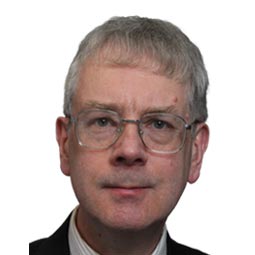
Prof. Dr. Ir. Serge Raes, Pre-Retired, Standardization and Intellectual Property Strategy Director, Orange, France
Serge Raes devoted countless hours, effort, and financial resources to his professional career, focusing on various activities within or complementary to ETSI. In 1991, he began contributing to the TETRA standard and later served, from 1993 to 1994, as a Project Team Leader/Expert in RES6 PT29 (project coordination), PT49V (standard re-drafting and restructuring), and PT62V (conformance testing).
From 1998 to 2005, Serge played a key role in the creation and operation of the 3G Patent Platform, an innovative patent pool for licensing essential patents related to the 3GPP UMTS and LTE standards. Between 2008 and 2022, he served as a DAtabase EXpert (DAX) for the DARE (IPR DAtabase RE-structuring) project. Additionally, from 2010 to 2022, Serge was Vice-Chair of the IPR Special Committee, for which he received a certificate recognizing “his outstanding contributions to the work of the ETSI IPR Special Committee, in particular for his dedication as Vice-Chair and for the extensive subject matter expertise he has brought to the ETSI community.”
ETSI Fellow 2025
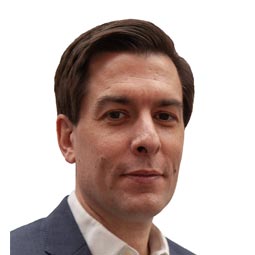
Alex Leadbeater, Technical Security Director, GSMA, UK
Alex Leadbeater is a leading expert and active member of the ETSI security community, having attended his first 3GPP SA3 meeting 24 years ago. Over the years, he has chaired four ETSI/3GPP security groups in parallel and has contributed extensively to ETSI security standardization activities. Alex has provided technical expertise and support for law enforcement obligations since the advent of 3G in 3GPP and has played a key role in driving major cybersecurity standardization efforts in TC CYBER, Secure AI (SAI), and NFV. Additionally, he has led the ETSI Security Conference for several years and delivered numerous conference presentations on behalf of ETSI. Alex has also represented ETSI in numerous EU and global regulatory cybersecurity activities and contributed to the ETSI education in standards programme. It remains an honour for him to witness the continued development of ETSI security standards, which drive advancements across a wide range of capabilities and create lasting impact and benefits for both the present and the future.
ETSI Fellow 2025
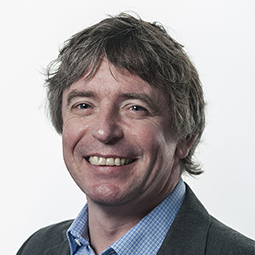
Dr. Howard Benn, Retired, former VP, Samsung Electronics, United Kingdom
Over the past 32 years, Howard Benn has been a major contributor to ETSI and 3GPP. He started in SMG2, where he worked on Phase 2 GSM radio standards, developing the RF scenario concept that reduced radio requirements while maintaining high performance levels. This work paved the way for single-chip solutions that acted as catalysts in the mobile industry. In 1998, he helped to create the radio group in 3GPP, becoming convenor and then Chair, remaining in this position until 2007. He then moved on to the SA1, SA plenary and CT plenary groups, which he attended until 2023 as a contributor. Outside of meetings, he has supported academia with standards education. As part of his efforts to develop ETSI’s strategy and support ETSI’s operations, he joined the Board in 2008, a role that he continued until his retirement in 2023.
ETSI Fellow 2024
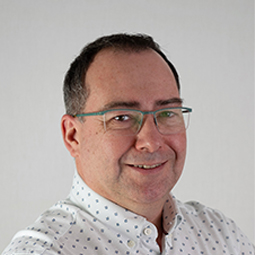
Philippe Magneron, Connected products standardization Manager, Hager group, France
Philippe Magneron has been a key member of the Short Range Devices standards community since 2004, when he joined ETSI ERM/TG28, where he contributed to developing standards for SRDs used by millions of citizens in their daily routines. He has spent over 30 years of his career working in Private Mobile Radio, Short Range Devices communications, and is now expanding into Cyber Security for connected devices. He has been a passionate promoter of the SRD industry in both his direct contributions to ETSI’s work and in his championing of ETSI on a broader level: particularly in CEPT ECC, CENELEC, and CEN in Europe; and in IEC on the international scene.
As rapporteur of the EN 300 220 standard series, Philippe has made an ETSI leading global standard for SRD / licence-exempt technologies, being cited across five continents.
ETSI Fellow 2024
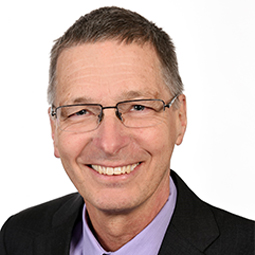
Dr. Matthias Schneider, HF Standardization Expert, IP and Licensing Schneider, Germany
Matthias Schneider has been an active figure in R&D for human factors, accessibility, usability, and user interface design since his graduation from the University of Stuttgart in 1986. He joined ETSI’s Human Factors Committee in 1995. Since 2010, he has been the Chair of TC HF and from 2011 to 2022 he was also the Chair of the ETSI/CEN/Cenelec Joint Working Group on eAccessibility. During his tenure as TC HF Chair, the committee was responsible for developing the most important European Norm and standards supporting European Accessibility legislation. He has been the initiator of the development of the ETSI Accessibility Policy and has been instrumental in overseeing its adoption by ETSI. His current roles focus on the implementation of ETSI’s accessibility strategy to ensure that ETSI will become a fully inclusive and accessible standardization organization.
ETSI Fellow 2024
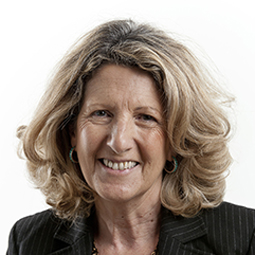
Isabelle Valet-Harper, Retired, former Standards Expert, CommLedge, France
Isabelle Valet-Harper, was a senior Standards Adviser at Microsoft, then a Standards Expert at CommLedge. She has more than 30 years of experience in Standardization in a number of French, European and International organizations including AFNOR, ETSI, ISO/IEC JTC1, IETF, W3C, 3GPP, Ecma International, OMA, the Multi Stakeholders Platform, etc. Within these organizations, Isabelle had various roles and responsibilities by occupying a number of positions, including Delegate, Editor, Chair, President, Board Member, and Liaison Officer. She has been a regular participant at ETSI GAs (and/or TAs), attending all of them since 1989, and has also been a member of the ETSI Board since 2011. During this time, she has been a member of several Review Groups and has taken on the roles of Board Champion or Ad-hoc Group Chair on multiple occasions, and she also chaired the Board Process Group. Isabelle has been especially involved in matters of governance, making sure that ETSI Directives, including the Technical Working Procedures, are fit for the rapidly evolving purpose of serving a highly dynamic standard-setting organization, and for its liaisons with the standards sector.
ETSI Fellow 2024
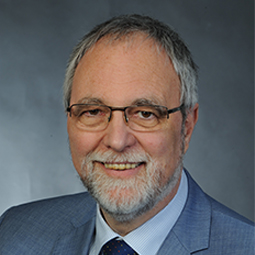
Dirk Weiler, Retired, former Head of Standards Policy, Nokia, Germany
Dirk Weiler is a firm believer in the power of standardization. He has been involved in standardization throughout his successful career in Siemens and Nokia. This spanned from contributing to technical work for GSM in ETSI in 1988 and leading Siemens Communication Standardization activities during the 1990s and up to 2006, including the creation of 3GPP, to guiding and leading standardization organizations and related industry bodies, enabling mobile communications and supporting the world’s most successful standardized eco-system. Within ETSI, Dirk has chaired the IPR Special Committee (2008–2018), the General Assembly (2010–2014), and the Board (2014–2023). He was also a member of the CEN-CENELEC-ETSI Joint Presidents’ Group and the 3GPP PCG/OP delegation, and representative for the European Commission ICT Standardization MSP. Dirk is a renowned advocate for global, open, and consensus-based standardization with FRAND IPR policies, allowing for the incorporation of the most appropriate technologies.
ETSI Fellow 2024
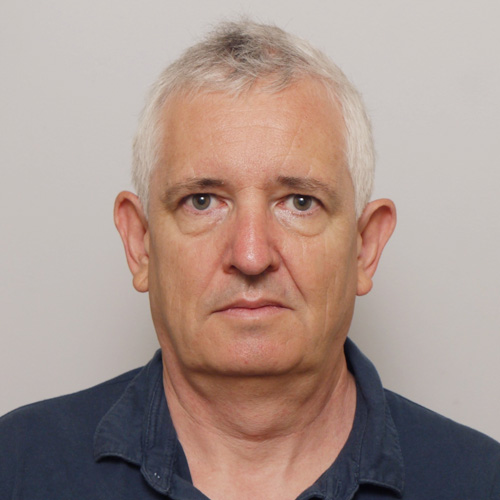
Scott Cadzow, Director, Engineer, Cadzow Communications Consulting Ltd (C3L), United Kingdom
Scott Cadzow has been an active member of ETSI’s community since 1995 and over that period has contributed to developments across a vast swathe of ETSI’s technical work.
From TETRA (as RES.6, then TETRA and TCCE) to TIPHON/TISPAN, including HF, MTS, eHealth, NFV—always pushing for the acceptance of security as a horizontal domain through the special SEC group until adoption as TC CYBER.
Scott is a recognized expert in cybersecurity and its application across a number of technologies addressing core aspects of risk analysis, methods, and applications, in many cases breaking new ground for ETSI in domains such as AI, virtualized environments, and quantum migration.
ETSI Fellow 2023
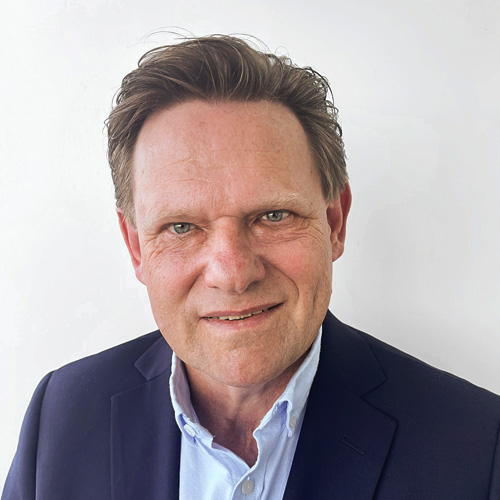
Hans Johansson, Radio Expert, Kapsch TrafficCom, Sweden
Hans has been a key contributor in ETSI from 2002 onwards for standards on road vehicle radio communication. His work started with developing harmonized standards for 5.8 GHz CEN/DSRC used in road toll equipment and similar applications. Later in TC ITS, Hans contributed to standards for 5.9 GHz ITS safety road applications and after some years became chair for the two physical layer groups. For TG37 it was complicated to develop and obtain EU acceptance of the harmonized standards for the new EU RED directive, including 6 years of negotiations. Hans coordinated the development of coexistence methods for completely different road ITS technologies. Because of the increased interest in using the 5.8 and 5.9 GHz band, Hans participated in other ETSI groups developing coexistence standards and participated in 10 different ECC groups, contributing to 17 CEPT/ECC reports.
ETSI Fellow 2023
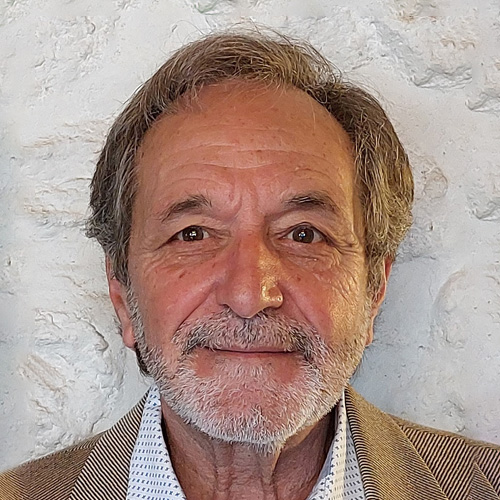
Robert Sarfati, Retired, former Director Technologies and Services for Mobility, SYSTRA Consulting Services, France
Robert has been the Chair of the Telecommunications Committee for Railway Communications (TC RT) for 21 years. The committee oversaw from 2001 onwards the development of ETSI standards in support of GSM-R and FRMCS. The work later expanded to the investigation and development of a common technical solution applicable to Urban Rail and coexisting with ITS in 2014. Robert initiated a key move of the rail sector from analogue telecommunications to the digital telecommunications world. Robert introduced and maintained a perfect complementarity between GSM-R Railway community (represented by the ‘Union Internationale des Chemins de Fer’ (UIC)) system requirements and the ETSI standards which provide the detailed standardized solutions. He was also one of the initiators of FRMCS, the 3GPP MCX-based system for which ETSI TC RT is currently developing ETSI standards as part of a European Commission standardization request. FRMCS will be the successor to GSM-R and Robert was instrumental in obtaining additional frequency for this system.
ETSI Fellow 2023
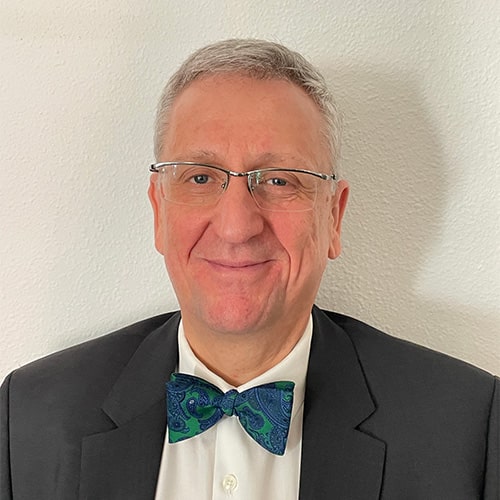
Dr. Diego López, Head of Technology Exploration and Standards, GCTIO Unit of Telefonica, Spain
Diego has been especially active in the ETSI Network Transformation initiatives, being among the original proponents of the seminal ISG NFV, and since then taking part in its leadership: he has acted as WG chair, as chair of the Technical Steering Committee, and chaired the ISG for four years.
Besides this, Diego took active part in the inception and foundation of ISG ZSM, which he has recently been appointed as chair of, and is active in other related groups such as ISG ENI and ISG MEC.
Finally, he is active as well in other initiatives related to network transformation, especially as main promoter and current chair of ISG PDL, part of the founding groups for ISG SAI and ISG ETI, and contributor to TC CYBER, ISG NIN and ISG QKD.
ETSI Fellow 2022
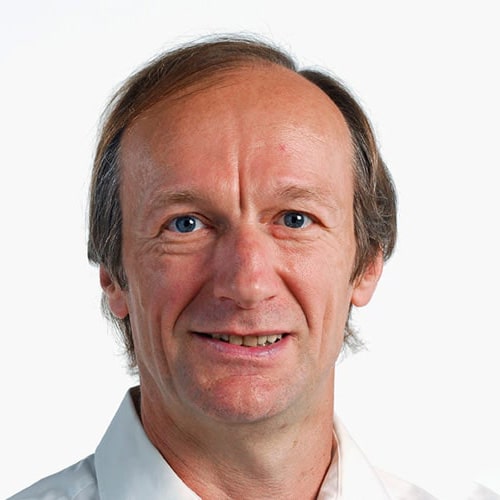
Dr. Günter Kleindl, Standardization Manager, OVE, Austria
Dr. Günter Kleindl has been a key member of the DECT standards community since 1987, when he joined ECTEL TCS and started to participate in CEPT RES3, what then became ETSI RES3 after the foundation of ETSI. In 1989 Günter moved to France for two years to lead the ETSI Project Team 10, who developed the DECT base standard that was first published in 1992.
Günter has spent over 35 years of his career in wireless communications and has supported the development of ETSI standards and needs of the industry in other standards bodies and industry fora. As TC chair and technical expert, he played the key role in the submissions to ITU-R.
In the year 2000 he managed the approval of DECT as a member of the IMT-2000 family and in the year 2022 he achieved the ITU-R approval of the new DECT-2020 standard as an IMT-2020 technology. A well-respected member of the wireless communications community globally, he is probably the person who has done the most to the continuing world-wide success of the DECT standards.
ETSI Fellow 2022
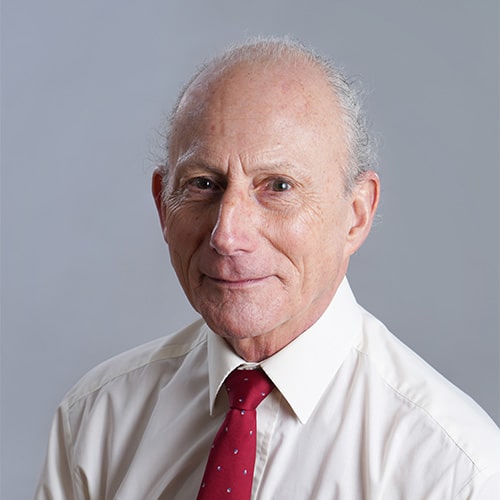
Larry Taylor, retired, Former Consultant, Discrete Time Communications, United Kingdom
Larry has spent much of his career working to obtain spectrum for new or emerging communications technologies, supporting spectrum requests with industry and international standards, participating in conferences, workshops and funded R&D programs to promote the work and associated standards.
The work on HIPERLAN in ETSI RES10 supported the initial designation of 5GHz spectrum on which today’s professional WLAN market is built. Work in IEEE and industry standards bodies supported the FFC UWB ruling for spectrum below 10.5 GHz.
Work on utility networks in IEEE, TIA, industry standards bodies and ETSI supported European spectrum designations at 870 MHz. He is a keen proponent of technical rigour and testability in standards and a strong supporter of the standards process and cross fertilisation between SDOs. He has led many technical committees in a variety of SDOs while also being a technical contributor and technical editor.
ETSI Fellow 2022
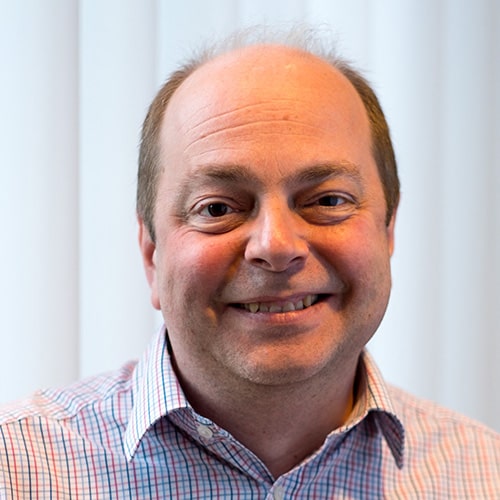
Lindsay Cornell, Principal Systems Architect, BBC Design + Engineering, United Kingdom
Lindsay has been involved in radio broadcasting throughout his career and is a pioneer of digital broadcasting technologies. He began his involvement in ETSI as Chair of STF-84 in 1997, developing the standard interfaces for the nascent Digital Audio Broadcasting (DAB) transmission equipment.
Through his careful consensus building approach, Lindsay has led the work to produce numerous digital radio standards (now approaching 100), taking the role of Rapporteur in JTC Broadcast. Lindsay was instrumental in bringing the standards for Digital Radio Mondiale (DRM) and RadioDNS hybrid radio into ETSI.
Lindsay has also contributed significantly to the development of Harmonised Standards for the Radio Equipment Directive in TC ERM TG17 (PMSE and broadcast). He has chaired TG17 WG2 since 2014, which has created the multipart deliverable for broadcast sound receivers, and adapted and updated the R&TTED standards for broadcast sound transmitters.
Lindsay continues to collaborate and develop deep relationships across industry, with emphasis also on spectrum and regulatory issues as Chair of CEPT FM51.
ETSI Fellow 2022
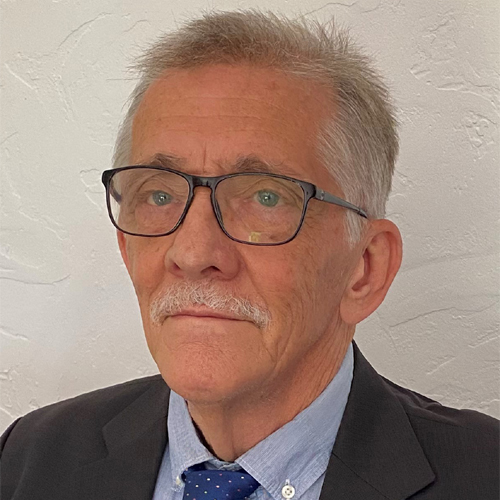
Anthony Wiles, Former CTI Director
Anthony joined the ETSI staff in 1995 as a member of the Permanent Experts group, which eventually evolved into ETSI’s Centre for Testing and Interoperability.
His firm belief in the importance of the technical quality of ETSI standards and the need for state-of-the-art approaches to standards development and testing guided his whole career at the Institute.
Anthony was deeply involved in the development of the widely used testing methodology ISO/IEC 9646. He was leader of the TC MTS Specialist Task Force that developed the test specification language TTCN-3, which became the cornerstone of 3GPP RAN5 UE conformance testing.
As Director of the CTI Anthony ensured the team adapted its support to widely diverse standards making activities, as demonstrated by the many ETSI groups that include interoperability testing (PlugtestsTM) as an integral step in their standards development.
His legacy is an ETSI Secretariat resource that is unique in the world of standardization.
ETSI Fellow 2021
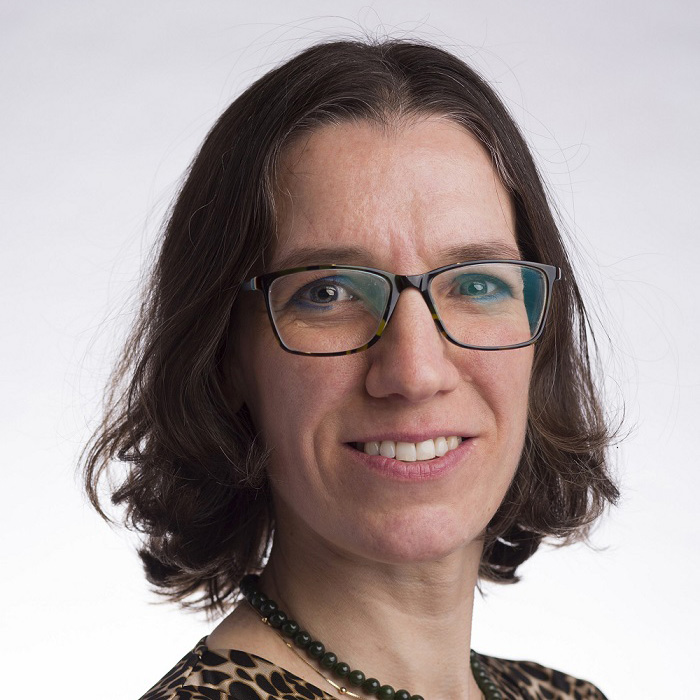
Dr. Gabrielle Owen, Coordinator Engineering for Spectrum Management, Radiocommunications Agency NL, Ministry of Economic Affairs and Climate, The Netherlands
Dr. Gabrielle Owen joined the ETSI Technical Committee Electromagnetic Compatibility and Radio Matters (TC ERM) in 2002 and was the Chair of TC ERM as well as the Operational Coordination Group R&TTE (OCG R&TTE), from 2005-2013.
More than 400 deliverables were published during her chairmanship of TC ERM, including many Harmonized Standards under the European Directive for radio equipment and dozens of ETSI System Reference documents which were submitted to the CEPT/ECC Working Group Frequency Management to request the use of radio spectrum.
She strengthened the internal cooperation between the ETSI radio groups as well as the external cooperation with CEPT/ECC.
Gabrielle Owen became a member of the ETSI Board in 2017 and served as Vice Chair of the ETSI Board from September 2018 to December 2020.
ETSI Fellow 2021
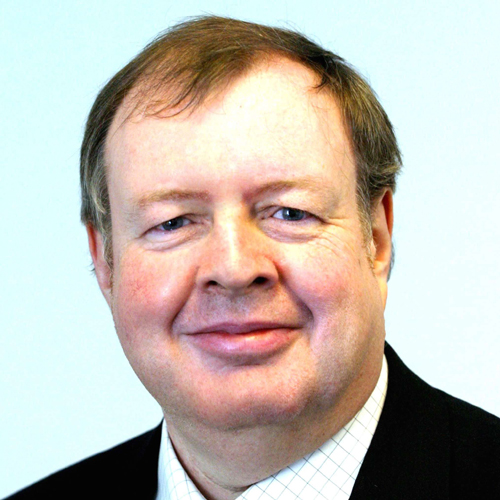
Charles Brookson, Director, Zeata Security Ltd, United Kingdom
Charles Brookson OBE CEng FIET FRSA has been involved in Security since the late 1970s and has been promoting and participating in Security in ETSI from the start. He was involved in the early days of GSM and Chaired the Algorithm Expert Group and was involved in security CEPT and SMG10 security.
Within ETSI he helped set up TC SEC, and when it closed in 2002, helped set up TC LI and became Chairman of OCG Security to coordinate security within ETSI.
In 2006 he started the first ETSI Security Workshop, which still continues today, and helped produce the first Security White paper. He started the Board process to start TC CYBER in 2014, and was the first Chairman for four years, and Vice Chairman for a further two years.
He still continues to participate in Security initiatives, meetings and Workshops.
ETSI Fellow 2021
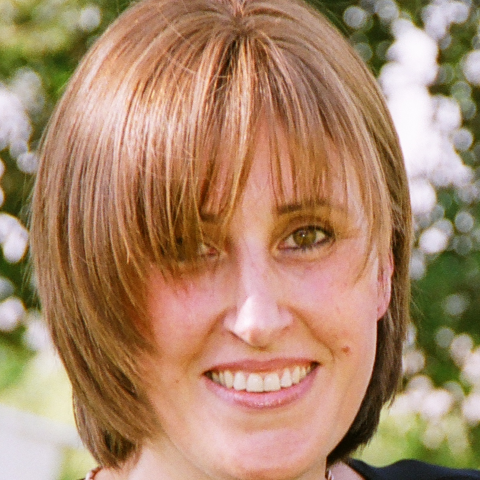
Nurit Sprecher, Head of Management, Virtualization & Application Enablement Standardization, Nokia
Nurit initiated and led the industry effort to set up the ETSI ISG MEC and successfully positioned the MEC technology as a key building block and enabler for 5G, IoT and mission-critical, vertical solutions. Nurit worked to establish strong collaboration across the industry to ensure the leverage of the MEC work. She has driven a powerful industry effort with members and officials of the ETSI MEC and 3GPP SA6 groups to create a synergic edge computing architecture, to avoid industry fragmentation and to accelerate time-to-market.
Nurit played an instrumental role in the creation of the ETSI ISG ZSM, and has worked to strengthen the cooperation with the relevant standard bodies and open-source projects to promote alignment, leverage synergies and ensure that end-to-end AI-empowered automation can be efficiently achieved.
Nurit has spent many years working as an expert system architect and technologist, defining the carrier-grade network and service architecture evolution. She contributed to many projects carried out in IETF, ITU-T SG15, IEEE and BBF and has participated in core discussions on the Next Generation Network with Tier-1 carriers and several governments.
Nurit leads Nokia’s standardization strategy and activities in the areas of management & automation, virtualization and application enablement. She is also a distinguished member of the Nokia technical committee.
ETSI Fellow 2021
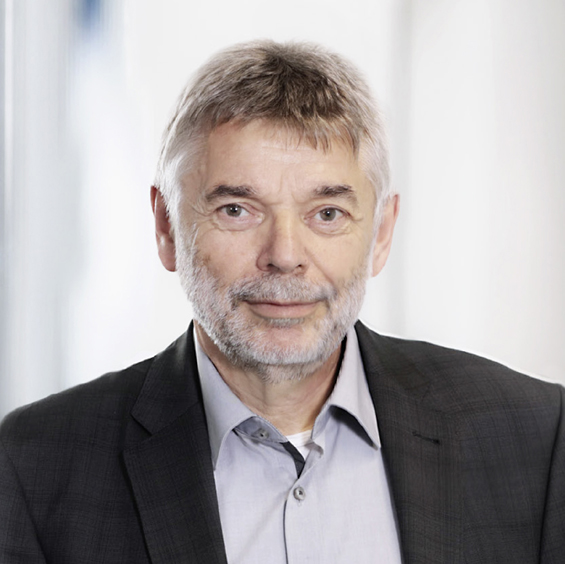
Dr. - Ing.Hans Wilhelm Gierlich, Managing Director Telecom Division, HEAD acoustics GmbH, Germany
Dr.-Ing. H. W. Gierlich started his professional career in 1983 at the Institute for Communication Engineering at RWTH, Aachen. In 1988 February he received a Ph. D. in electrical engineering. In 1989 he joined HEAD acoustics GmbH in Aachen as vice president. From 1999 to 2014 he was head of the HEAD acoustics telecom division. Since 2014 he is managing director at HEAD acoustics.
He is mainly involved in acoustics, speech signal processing and its perceptual effects, QOS & QOE topics, measurement technology and speech transmission quality.
He is active in ITU-T, ETSI, 3GPP, GCF, IEEE, TIA, CTIA, DKE and VDA. In ITU, he was chair of the ITU-T focus group CarCom. He is Rapporteur for various questions in ITU-T SG12. He was rapporteur for a variety of work items in ETSI, he is vice chair of ETSI technical committee STQ and was chair of STQ from 2016 – 2020.
He is author of more than 150 scientific papers and holds five patents. He is member of ASA, IEEE, VDE and DEGA where he was chair of the “Speech Communication” committee.
ETSI Fellow 2021
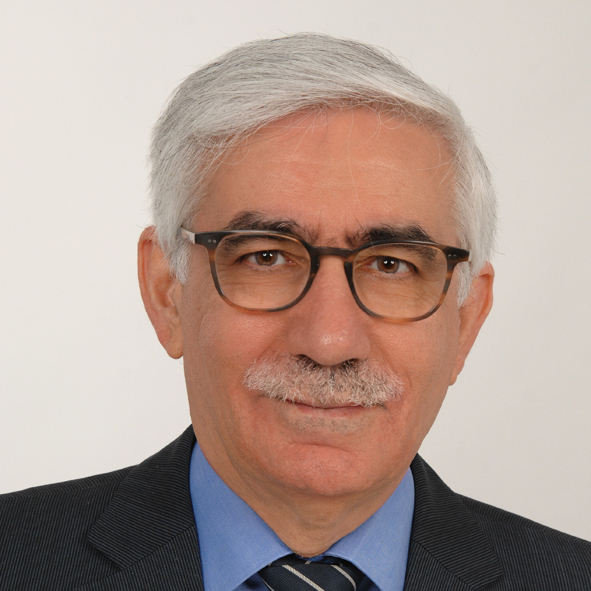
Dr. Jamshid Khun-Jush, Vice President, Technical Standards, Qualcomm CDMA Technologies GmbH, Germany
Jamshid has been since 1996 a key member of several ETSI TBs, Projects and Task Groups for broadband and mobile radio access networks. As the chairman of ETSI TC BRAN physical layer group, he made late 1990s key technical contributions to the promotion of OFDM-technology for broadband wireless LANs and MANs.
Furthermore, he established a close cooperation between ETSI and IEEE 802 wireless working groups (.11 and .16) in his capacity as the ETSI BRAN chairman, and was the key driver behind the global harmonization of OFDM technologies for broadband wireless LANs and MANs.
From 2003 to 2010, Jamshid represented his company in 3GPP WG RAN4 and was a main contributor to the standardization of RF performance requirements for UMTS and LTE. In parallel, he was an active member of ETSI MSG TFES, where he contributed to the development of Harmonised European Norms (HENs) for UMTS, cdma2000 and LTE. As the ETSI JTFER chair, Jamshid led the ETSI activities respecting HENs for Reconfigurable Radio Systems as well as for the preparation of related System Reference Documents.
In addition to his ETSI Board membership since 2011, Jamshid made in recent years considerable contributions to the development of HENs for Radio LANs as well as for Intelligent Transportation Systems and spectrum sharing techniques for such systems in 5.9 GHz.
ETSI Fellow 2021
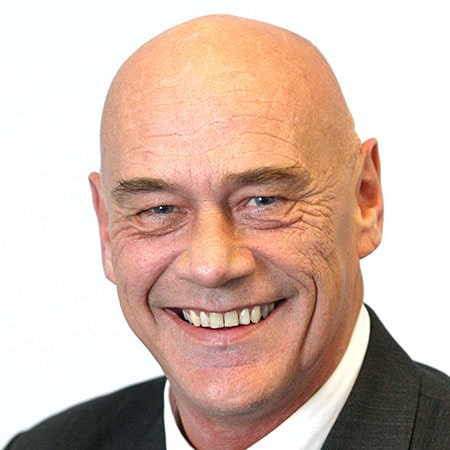
Ian Doig
For eight years, Ian Doig had been a Higher Telecommunications Technical Officer with the UK Radiocommunications Agency before being seconded to ETSI as a Technical Editor in 1993. He later joined ETSI as a staff member. Ian was responsible for the coordination and editing of the output of Technical Committee Special Mobile Group (SMG) and its working groups, the ETSI predecessor to 3GPP. Additionally, and in conjunction with STF12, Ian took on much of the coordination of the working methods of SMG, which had inherited the work on second generation cellular technology from CEPT Groupe Spécial Mobile (GSM).
Ian played a key role in the foundation of 3GPP, helping to establish and explain the project’s working procedures and processes.
In 2000 he took his skills and knowledge of ETSI and 3GPP work back into industry, on behalf of Motorola and later as a lead BlackBerry delegate until his retirement at the end of 2019.
Ian also contributed greatly to ITU and CEPT groups, representing his company’s position with a positive attitude, constructive behaviour and great technical knowledge and insight.
Ian’s dedication to telecommunications standardization was very well known and acknowledged throughout ETSI and later 3GPP.
Ian’s goal had always been to contribute positively to ETSI in the interest of the entire membership and for the greater good of the Industry. For 3GPP he travelled the world, committed to creating the best-documented standards in the industry, and was renowned for his perspicacity and for having an eye for spotting ugly and ambiguous wording. Ian's knowledge of the rules of the game was profound, and many a timely intervention immeasurably improved the quality of the standard's text.
Ian Doig passed away in February 2020. He is missed by ETSI and 3GPP colleagues and his many friends.
ETSI Fellow 2020
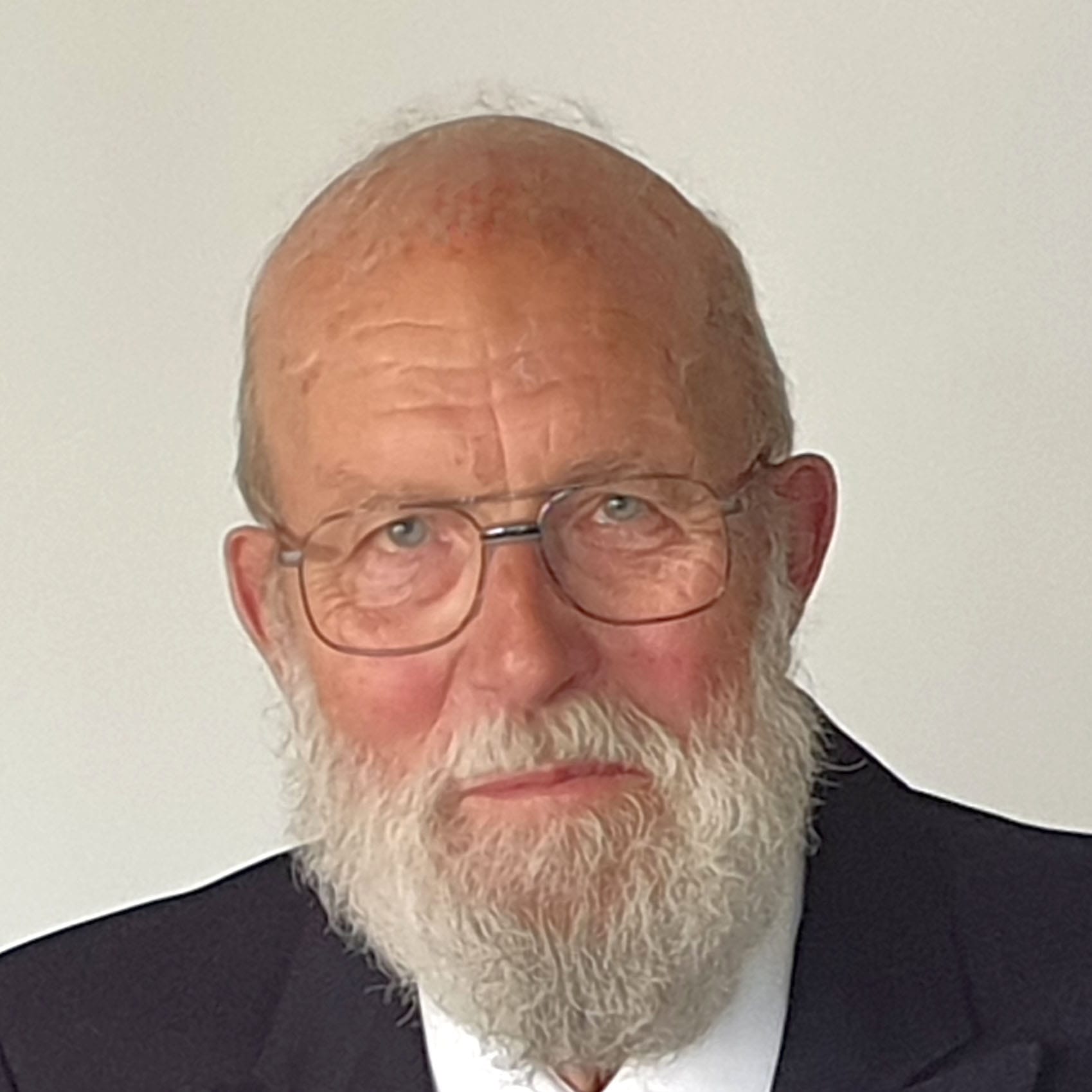
Brian Copsey - Director, Copsey-Comms - United Kingdom
has over 56 years of experience in telecommunications, radio, outside broadcast, fiber optics and radio interference. His work in ETSI started in 1991 when he was appointed Chairman of a working group in charge of Radio Microphones and Assistive Listening Devices (ALDs). In this group he introduced the first spectrum masks in what would become the European standard EN 300 422, the major PMSE and ALD standard.
Since 1993, Brian has been an active member of numerous CEPT groups involved in Programme-Making & Special Events (PMSE) and ALD issues. In 1996, he became ERM TG 17 Chairman, the group in charge of broadcast related activities such as TV and radio transmitters, video links, radio microphones and In-ear Monitors (IEMs) which has more recently produced harmonized standards for the Radio Equipment Directive. In his role of Chair, he brought ETSI TG17 work into the ITU and subsequently had it included in their reports and recommendations.
Since 2008 he has been investigating and testing the radio interference and spectrum aspects of ALDs for Hearing Aid manufacturers and users of hearing aids. In 2009 he was elected Chair of the ETSI TC SAFETY in charge of co-ordinating safety and EMF requirements between ETSI and CENELEC, and for co-ordinating ETSI’s position on telecommunications equipment safety.
From 2010 to 2016 he was the Chairman of the Global Standards Collaboration (GSC) Radio microphone group and was instrumental in the development of the first multi country Radio Microphone standard.
ETSI Fellow 2020
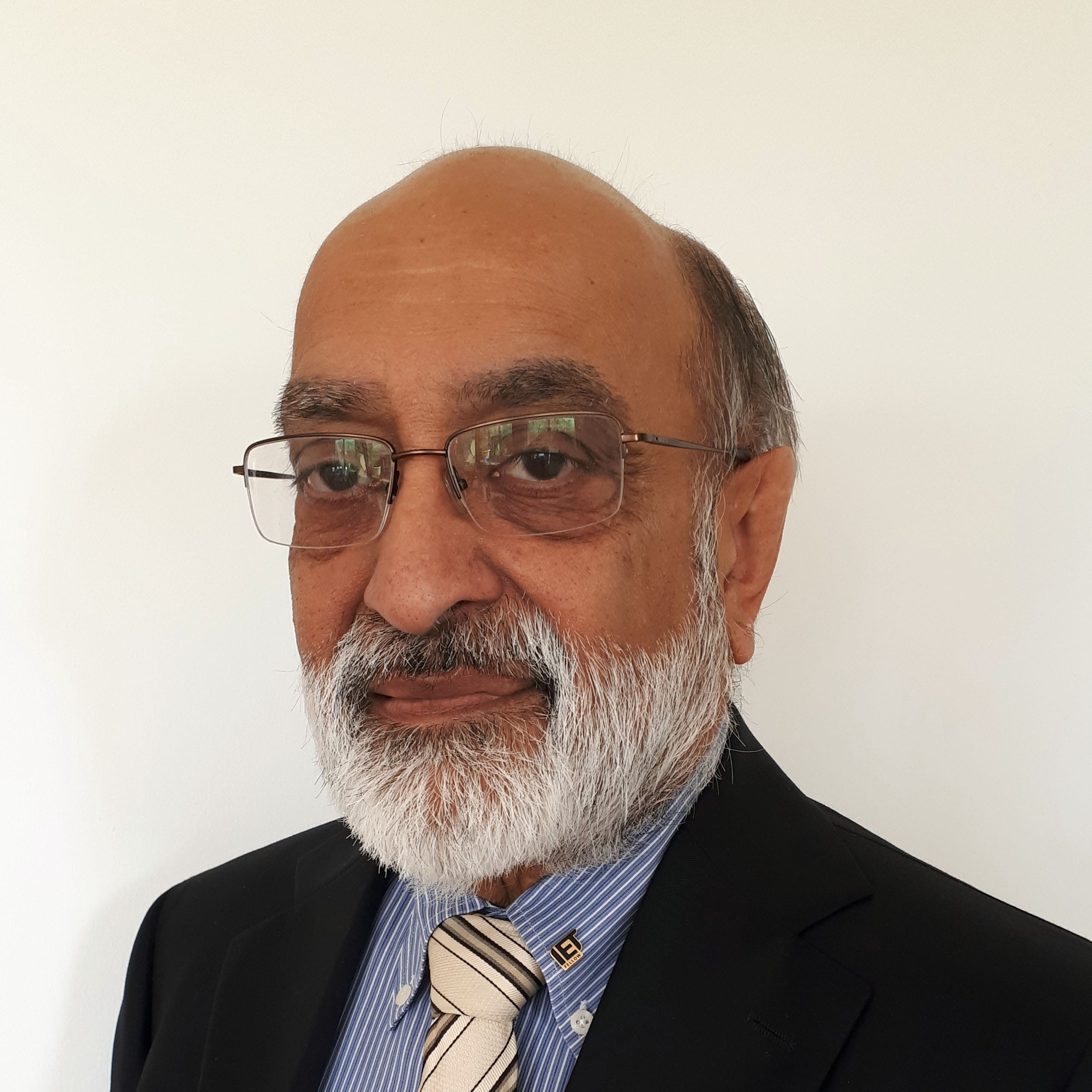
Kiritkumar P. Lathia - B.Sc. C. Eng. Fellow IET - United Kingdom
as VP – Product Strategy, Standards and Regulations at Siemens SpA, Italy; and as Telecommunications Advisor of Italian Government, participated in all ETSI’s strategic/policy activities from 1992 to 2009. During 1992 – 1994 he led Italian Government positions concerning the ETSI IPR Policy with special focus on SMEs having access to ETSI Essential IPRs. In 1994 – 1995 he participated in ETSI Strategic Committees resulting in the current ETSI organisational structure replacing the ETSI Technical Assembly with the ETSI Board and OCG.
In 1996 his “Programme Advisory Committee” provided ETSI with a technical vision for IP based convergence of fixed/mobile/internet core networks with publication of “GMM – Global Multimedia Mobility”. During 1998 Mr. Lathia was an active member of the ETSI delegation in the creation of 3GPP in December 1998 and ensured that ITU-T adopted 3GPP specifications; thus making 3GPP the de-facto global standards body for mobile communications.
From 1997 to 2008 Mr. Lathia was a member of the ETSI Board and Finance Committee where he led enhancements to the ETSI Rules of Procedures to reduce membership fees for SMEs and Academia categories and guaranteeing that the ETSI Board must have an SME member. He made numerous forward looking presentations on behalf of ETSI at international conferences and workshops. At the European level, Mr. Lathia represented ETSI as Chairman of the ICT Standards Board and assisted the European Commission to formulate its official positions for RFID, Privacy and Data Protection Principles.
ETSI Fellow 2020
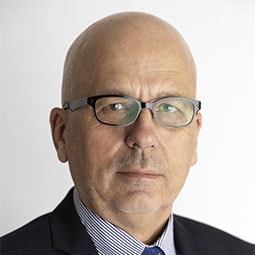
Edgard Vangeel - Manager Engineering - Cisco Systems - Belgium
started work in ETSI back in 1993, when he became a member of the former TC RES and RES 02. Later on he became active in other groups such as RES 9 (EMC) and RES 10 (Hiperlan). In 1999, when TC RES became TC ERM, a new Task Group (TG11) in charge of 2.4 GHz Wireless LANs was created. Edgard was appointed as TG11’s first chairman and he is still chairing this task group now >20 years later. Edgard also became active in TC ERM’s working group Radio Matters (ERM WGRM), and in 2001, ERM WGRM appointed Edgard as the ETSI Liaison Officer to CEPT WGFM. In February 2020, he had represented the entire ETSI community in about 50 meetings of the CEPT WGFM over a period of almost 19 years.
In early 2002, Edgard joined the Technical Committee BRAN. At that time TC BRAN was finalizing the initial version of EN 301 893, the harmonized standard for 5 GHz RLANs. Edgard was able to leverage his knowledge and Cisco’s resources in order to ensure the development of the DFS requirements in order to protect civil and military radars. He served as rapporteur for several work items within TG11, TC BRAN and TC ERM. He became chairman of TC BRAN in 2009 and remained in this position for more than 10 years.
ETSI Fellow 2020
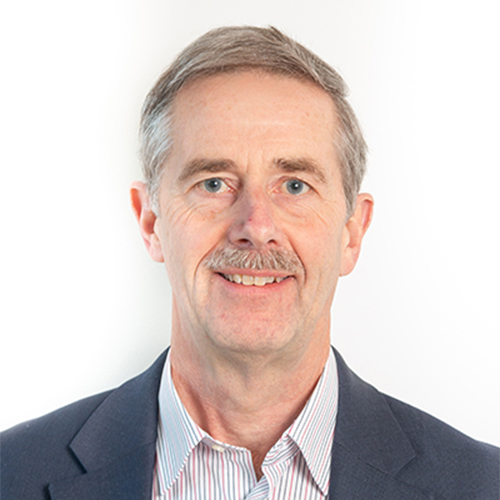
David Chater-Lea
has been a key member of the TETRA standards community since 1994, when he joined what was then ETSI RES6 WG6, who designed the TETRA security standards. David has spent over 35 years of his career in mission critical communications and has tirelessly supported the development of ETSI standards and needs of the industry in other standards bodies and industry fora. In ETSI TCCE, David is leading the effort to develop interoperability between TETRA and 3GPP standards so that the TETRA standards are ready in time for the user communities' needs for interoperability between existing TETRA systems and users operating on 3GPP systems. A well-respected member of the critical communications community globally, he is probably the person who has done the most to evolve the standards from TETRA into critical communications over broadband.
See our exclusive interview with David Chater-Lea
ETSI Fellow 2019
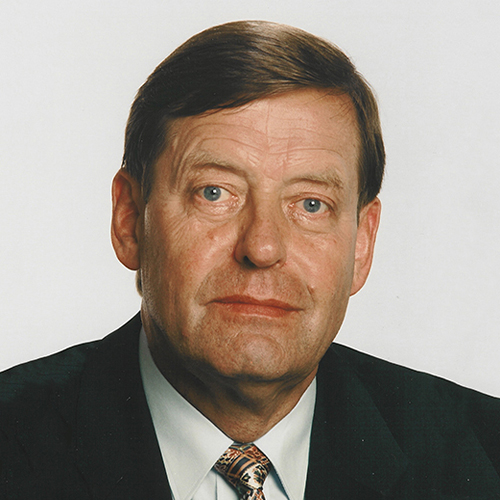
Friedhelm "Fred" Hillebrand
began his career at Deutsche Telekom. He became project manager for the German public packet switching network. From 1984 to 1992, Fred and his team contributed to the GSM standard and led the implementation of Deutsche Telekom’s GSM network. Fred chaired a Working Party for non-voice services of GSM. Notably, he proposed inclusion of SMS that would be supported by all networks and native on every mobile device. From 1996 to 2000 Fred was Chairman of ETSI’s Technical Committee SMG (Special Mobile Group) which included 11 sub-committees and 50 working groups. SMG elaborated the GSM evolution and the basic parameters of 3G, integrating contributions from partners around the globe. Fred successfully initiated the creation of 3GPP as future global standardization body for mobile communication. Since 2004, Fred has provided consulting services concerning patents in mobile communication.
See our exclusive interview with Fred Hillebrand
ETSI Fellow 2019
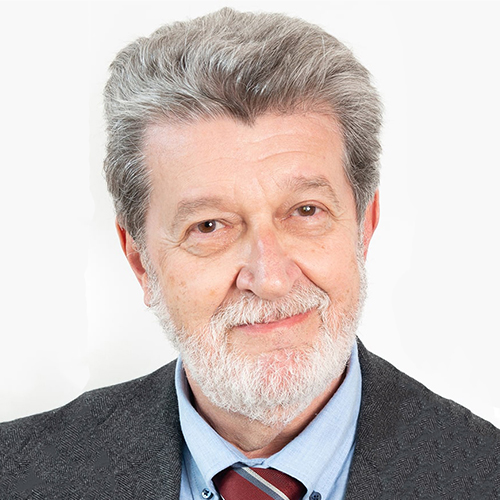
Dr. Roberto Macchi
has been involved in ETSI for more than 20 years, as a participant then Chairman, since 1997, of the ETSI fixed radio systems working group (TM4) in the Access, Terminals, Transmission and Multiplexing technical committee (ATTM). As an internationally recognized expert in fixed radio systems, he was also involved in interdisciplinary issues (EMC, EMF, regulatory, essential requirements) and interworking activities with ITU-R, CEPT or administrations. Thanks to Mr. Macchi globally recognized expertise, ETSI Harmonised Standards for fixed radio services and microwave point-to-point and point to multipoint systems are considered as The worldwide reference by non-European telecommunication authorities and microwave equipment manufacturers. Roberto Macchi currently works as a Standards and Regulations expert in SIAE Microelettronica. As a Chairman, and beyond his technical competencies, he has proved to be a very good mediator.
See our exclusive interview with Roberto Macchi
ETSI Fellow 2019
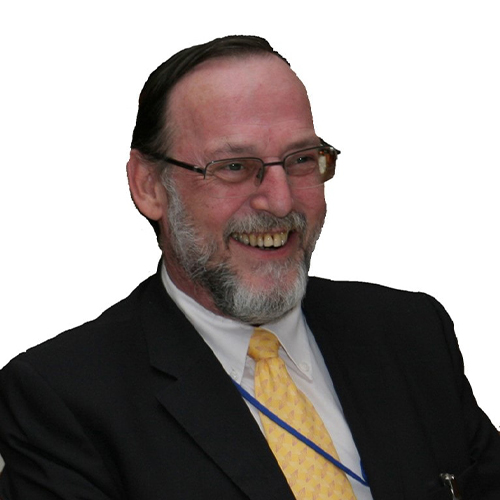
François Courau
was one of the few who participated in the early work on GSM, before ETSI was founded, and continued to help define our current 3G and 4G networks. He played a key role in the development of GSM, UMTS and LTE, in CEPT, ETSI and 3GPP. His name is universally associated with 3GPP RAN, although he had many roles in many committees. Working for France Telecom at first, he started in the CEPT Groupe Spéciale Mobile (GSM) Permanent Nucleus in 1987 and served as SMG3 Secretary from 1989 to 1992. He was the chairman of ETSI SMG 12 from 1998 to 2002 and ETSI MSG group from 2000 to 2009. He was also the 3GPP RAN chairman from 2001 to 2009. This award, granted posthumously, was received by François’ wife, Christiane Courau on his behalf.
ETSI Fellow 2018
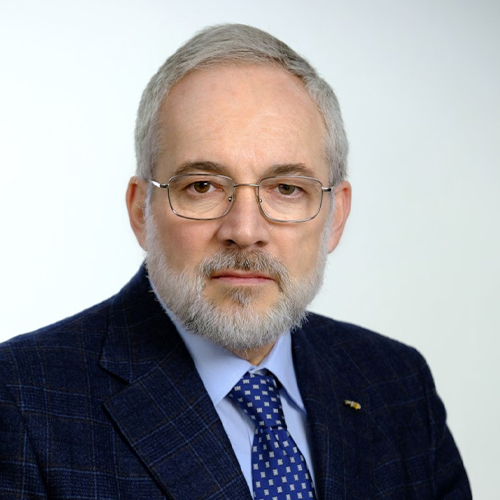
Enrico Tosato
is the “champion” of Short Range Devices at ETSI – which are now used in thousands of applications. He has been credited with bringing this industry seen as “gadgets manufacturers” at first, 30 years ago, to very professional and structured businesses well represented at ETSI and the CEPT. He has served as chairman for all of ETSI’s Short Range Devices standardization groups, including RES 8, the Low Power Devices sub-committee of our Radio Equipment and Services Technical Committee, then moved to RP08 and finally became ERM Task Group 28, on Short Range Devices, from its creation in 2001 until this year. He has also been very active at CEPT in support of the SRDs industry, ensuring close cooperation between ETSI and CEPT.
ETSI Fellow 2018
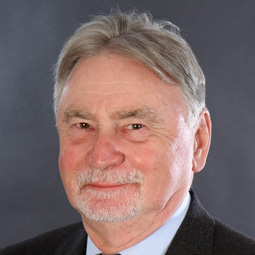
Dr Klaus Vedder
is the person who has driven the standardization of the SIM, USIM and UICC. He is known for his passion and dedication for his work, which has made him a highly recognized and respected chair and a role model for many. After joining the CEPT GSM SIMEG (SIM Expert Group) in 1988, he was elected Chairman in 1993 and became one of ETSI’s longest serving chairs and has since then led all the SIM related committees in ETSI, including the activities of SMG9 and SCP. He also led the ISO/IEC committee JTC1/SC27 "Information technology - Security techniques” from 1992 to 1996 and the 3GPP T3 group from 1998 to 2002. He has chaired the ETSI Smart Card Platform technical committee in ETSI since 2000.
ETSI Fellow 2018
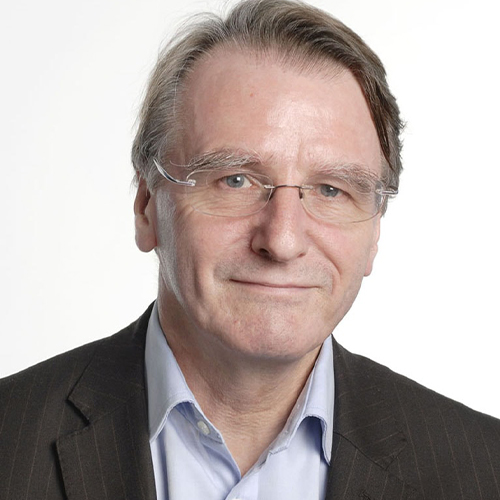
Michael Walker
has managed to have three, almost parallel careers, a ‘corporate’ career in Vodafone where he rose to Group R&D Director, an academic career as a professor at Royal Holloway, University of London, and Head of a School in Kings College (University of London) and his ETSI career. In ETSI he chaired a number of technical bodies, including SMG 10, 3GPP SA3 or the Technical Committee Security from 1996 to 1998. Through these committees he led the development of mobile security standardization for GSM, UMTS and LTE. He was an ETSI Board member, chairman of the Board for 3 years, and the person who probably did most to drive the development of ETSI’s Long Term Strategy. He is one of those who have left their mark on the Institute, as well as helping shape this industry.
ETSI Fellow 2018
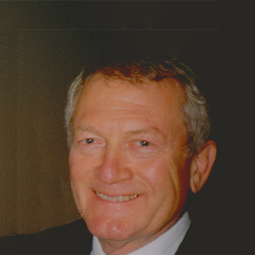
Frede Ask
was elected in 1988 as ETSI Deputy Director, and served in that capacity and Deputy Director General until his retirement in 1996. Frede was also ETSI’s legal advisor, secretary to the ETSI IPR Steering Committee and was instrumental in shaping the IPR policy of the Institute at its beginnings. Thanks to his negotiation with the European Commission, he helped achieve recognition of ETSI as an official European Standards Organization, alongside CEN and CENELEC. Frede Ask is fondly remembered as a great personality and as one of the individuals who helped define what ETSI is. This award, granted posthumously, was received by Frede’s son Henrik Ask on his behalf.
ETSI Fellow 2017
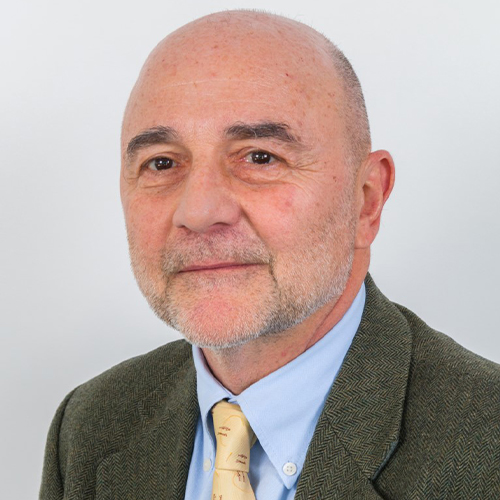
Nuno Encarnação
has participated in ETSI since 1992. From 1997 to 2000 he served as chairman of the Analogue Terminals and Access committee, and then as chairman of the Access and Terminals committee until 2006. He led the development of a range of TBR specifications for regulatory requirements for fixed network access, and later the Harmonised Standards under the Radio & Telecommunications Terminal Equipment (R&TTE) Directive. These included in particular TBR 21 for analogue non-voice access requirements. From 1999 to 2006 he was vice-chair of the ETSI group coordinating the implementation of the range of Harmonised Standards required for the R&TTE Directive. As chairman of TC AT Nuno also oversaw the introduction of cable network standardization at ETSI, which has now resulted in the creation of a dedicated committee, TC Cable.
ETSI Fellow 2017
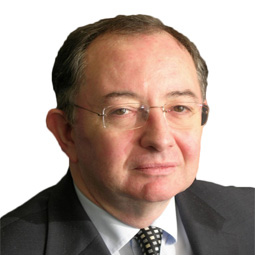
John Phillips
has been active in ETSI since 1989 through different leadership, technical and strategic roles. As the Chairman of ETSI General Assembly from 2006 to 2010 he led ETSI through a number of changes, putting in place the financial reporting structure and contributed to the EC’s Future Landscape of European Standardization. He also served as vice-chair of the General Assembly from 2002 to 2006 and as a member of the ETSI Board from 1999 to 2006.
ETSI Fellow 2017
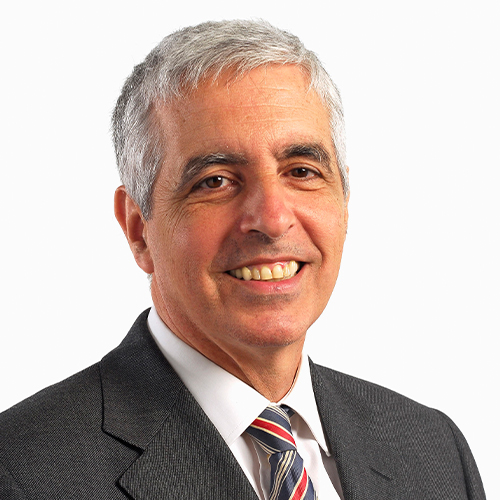
Francisco da Silva
was influential in the CEPT committee that triggered the establishment of ETSI, as well as e.g. in the CEPT group that determined the relative allocation of responsibilities on Radio spectrum matters between CEPT and ETSI. He was the chairman of the ETSI General Assembly from 1998 to 2002 and chairman of the ETSI Board from 2002 to 2008. He continues to be active in the technical standardization work of ETSI and is a member of the Board of ETSI. He is currently Senior Counselor for standardization and Technical Regulation at Huawei Sweden.
ETSI Fellow 2016
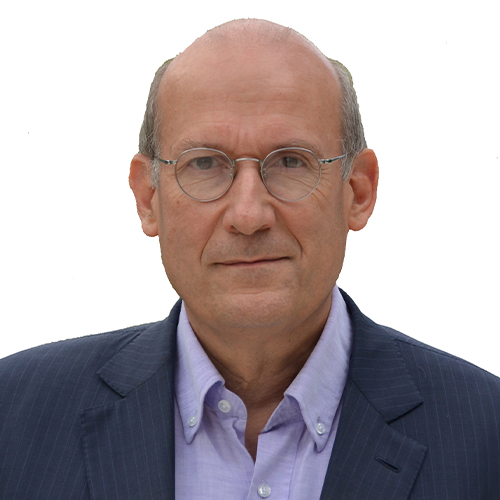
Alain Maloberti
has been intensively involved in the research, development and standardization activities of the GSM system since the mid-80’s and has contributed heavily to standardization bodies. In ETSI he chaired the SMG2 group, in charge of the radio aspects of GSM for 10 years. In addition, he chaired the UMTS group preparing 3G standardization from 1990 to 1992. Alain Maloberti was active in promoting the GSM solution outside of Europe and therefore has contributed to a true global adoption of the standard. He is currently Senior Vice-President at Orange Labs Networks.
ETSI Fellow 2016
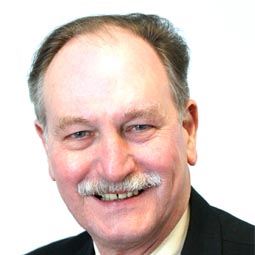
Oliver Wheaton
was the founding chairman of TC ERM from 1997 to 2005. During this time it grew to be one of the largest technical committees in ETSI in terms of participation and workload. He was instrumental in leading the group in drafting some of the most important ETSI standards, including those related to the R&TTE Directive, which continues to have a huge impact on the regulatory environment today. Oliver was the Deputy Director for Mobile Services in the UK Radiocommunications Agency (RA). He has taken the lead for ETSI in GRSC, and has led for the UK in ETSI’s Technical Assembly and is currently the head of the UK delegation in ETSI’s General Assembly.
ETSI Fellow 2016
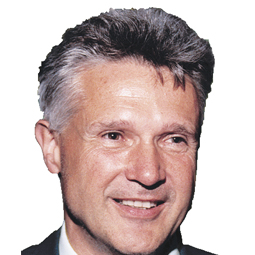
Karsten Meinhold
represented Siemens and later Nokia Siemens Networks at ETSI. Karsten served two terms as a much-appreciated chairman of the ETSI General Assembly, having previously also served as vice-chair. Karsten also led a reform of the ETSI IPR policy and was the first chairman of the ETSI IPR committee.
ETSI Fellow 2016
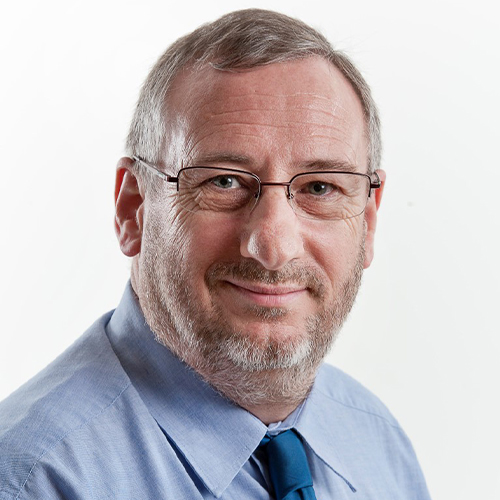
Julian Pritchard
first involvement with ETSI dates back to 1988 when he was a technical expert for BT contributing to the writing of EN 300 001 (NET4). He then joined ETSI secretariat as a Technical Editor before taking several positions within ETSI including Secretary to the ETSI General Assembly, to the ETSI Board and to the IPR Special Committee. He finally retired as ETSI’s Director of Governance Support in 2014.
ETSI Fellow 2016
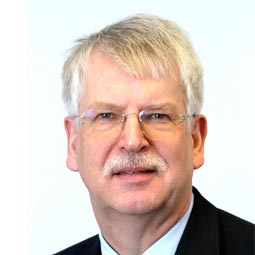
Karl Heinz Rosenbrock
served as ETSI Director General from 1990 to 2006 and is now Honorary Director General. He was elected as ETSI’s second Director General only two years after the foundation of the Institute and has been the longest serving holder of that post. He helped shape the Institute into what it is today, creating a culture based on collaboration, transparency and putting people first.
ETSI Fellow 2016
